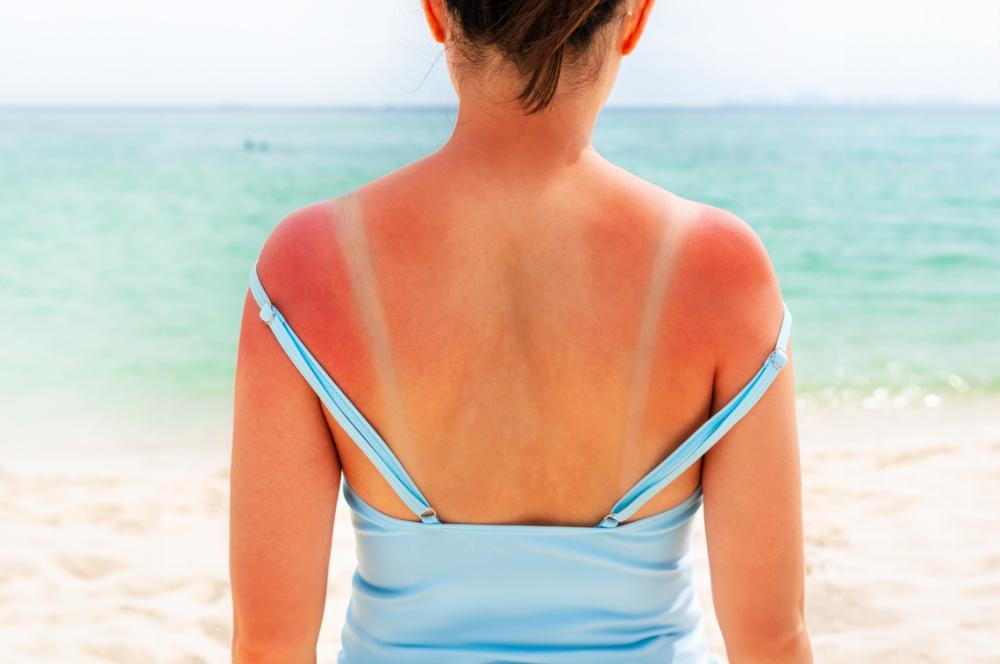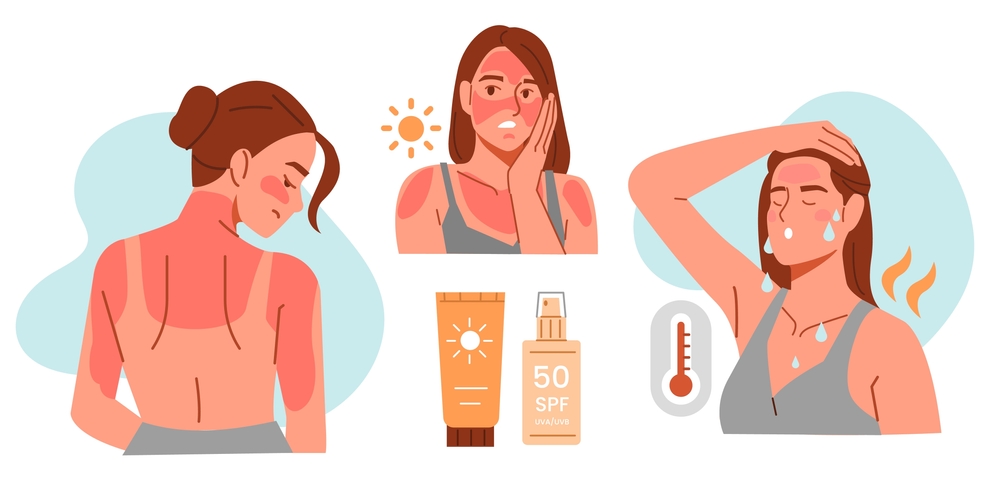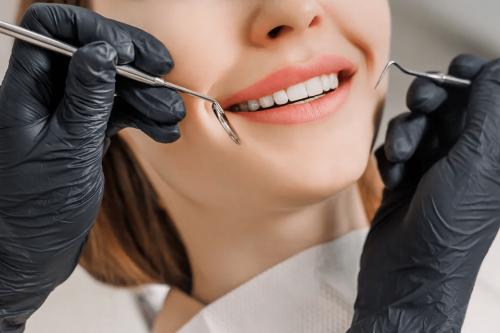
From Tan Lines to Trouble
Many people think sunburn is the worst the sun can do to your skin, but there’s another level of sun damage that’s more serious and potentially dangerous which is sun poisoning. Despite its name, it’s not actually “poison,” but rather a severe immune reaction to UV overexposure.
What Is Sun Poisoning?
Sun poisoning happens when your skin and body are overwhelmed by extreme UV exposure, causing not only a deep burn but also systemic symptoms, meaning your whole body is affected, not just your skin. It’s essentially your body saying, "I can’t handle any more sun."
Common Symptoms
Sun poisoning can start like a regular burn but quickly escalate:
- Severe redness and swelling
- Intense pain or blistering
- Headache or dizziness
- Nausea or vomiting
- Fever or chills
- Tingling, itching, or rash over and around the burnt area
- Dehydration symptoms (dry mouth, rapid heartbeat)

Sun poisoning is your body’s alarm bell that you’ve had too much UV exposure… the damage goes deeper than the surface, and acting quickly can prevent serious complications.
Why It Happens
Too much ultraviolet radiation from the sun:
- Damages skin cells deeply
- Triggers inflammation
- Causes your immune system to go into overdrive
- Can disrupt your body’s fluid and electrolyte balance
What to Do if You Suspect Sun Poisoning
- Move indoors or into the shade immediately.
- Cool the skin with a cold compress or a cool shower (not hot).
- Drink plenty of water to stay hydrated.
- Apply soothing lotions, such as aloe vera gel.
- Take over-the-counter antihistamines to ease itching (only as directed).
- Seek medical help if the burn is severe, blistering is widespread, or you have fever, confusion, or persistent vomiting.

When to See a Doctor
- Seek medical help urgently if you notice:
- Large blisters or severe swelling
- Fever over 38.5°C (101.3°F)
- Confusion, fainting, or rapid heartbeat
- Persistent vomiting
- Symptoms that worsen over 24 hours
At HMS Mirdif Hospital, our Dermatology Department offers comprehensive skin care from treating severe sunburn and allergic skin reactions to managing chronic skin conditions. Our experienced dermatologists use advanced techniques to relieve symptoms, promote healing, and restore skin health.
Prevention Is Key:
- Wear UPF-rated clothing and a wide-brim hat
- Apply broad-spectrum SPF 30+ every 2 hours
- Avoid peak sun hours (10 AM – 4 PM)
- Stay hydrated before, during, and after sun exposure


